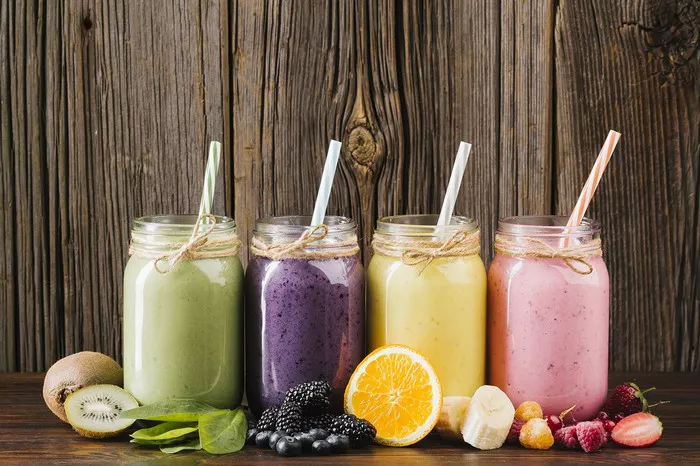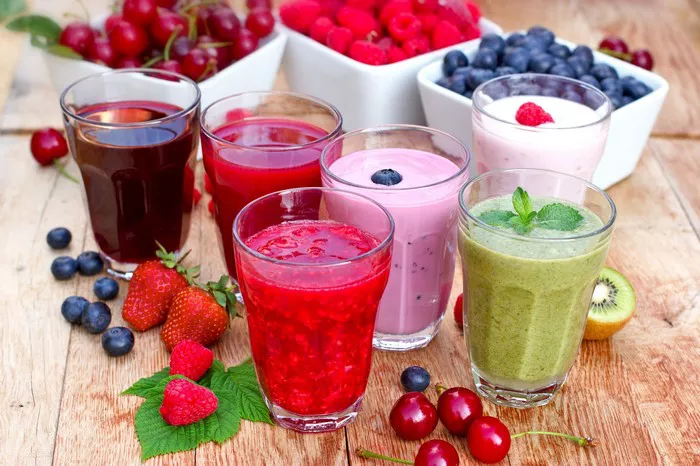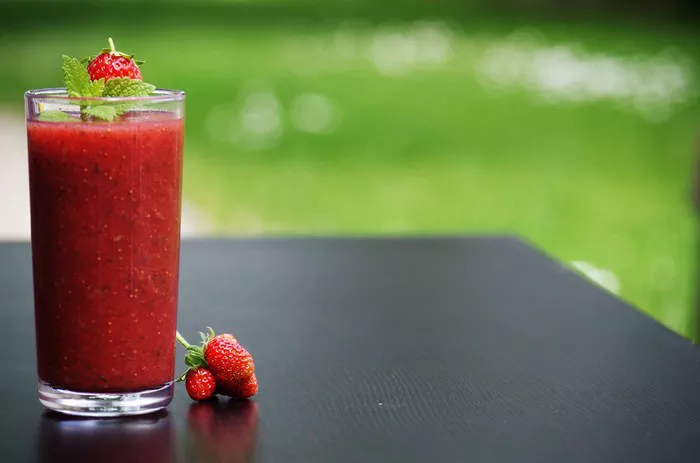Smoothies are a popular way to pack a lot of nutrients into a single, easy-to-consume drink. With endless variations, the options can be overwhelming. However, when looking for the most nutritious smoothie, you need to consider several key factors, including the ingredients’ nutritional value, the balance of macronutrients, and how they work together to support overall health. In this article, we will dive into the most nutritious smoothie, focusing on essential ingredients that maximize benefits for your body.
The Importance of a Nutritious Smoothie
Smoothies provide an excellent opportunity to boost your intake of fruits, vegetables, and other nutrient-dense foods. They are easy to customize based on your preferences, and they can be a great way to get more vitamins, minerals, fiber, and healthy fats into your diet. By choosing the right ingredients, you can create a smoothie that supports your immune system, enhances digestion, helps with weight management, and provides a long-lasting energy boost.
Key Ingredients for a Nutritious Smoothie
To create the most nutritious smoothie, you need a combination of whole foods that offer a variety of essential nutrients. Below are the key ingredients that should be included in your smoothie to maximize its health benefits.
1. Fruits for Vitamins and Fiber
Fruits are packed with vitamins, minerals, and antioxidants. They also provide natural sweetness, making your smoothie delicious and satisfying. Here are some of the best fruits to include in your smoothie:
Berries (blueberries, strawberries, raspberries, blackberries): Berries are rich in antioxidants, which help fight inflammation and protect the body from oxidative stress. They are also low in sugar and high in fiber, promoting healthy digestion.
Bananas: Bananas are an excellent source of potassium, which helps maintain proper muscle function and heart health. They also provide a creamy texture when blended.
Mangoes: Mangoes are packed with vitamin C, which supports the immune system and promotes healthy skin. They also contain fiber to aid digestion.
Avocados: While technically a fruit, avocados are rich in heart-healthy monounsaturated fats and fiber. They make smoothies extra creamy and contribute to sustained energy.
Oranges: Oranges are a great source of vitamin C and folate, both of which play key roles in immune function and tissue repair.
2. Vegetables for Extra Nutrients
Vegetables add a powerful nutritional punch to smoothies. They are rich in vitamins, minerals, and fiber while being low in calories. Here are some nutritious vegetables to include:
Spinach: Spinach is an excellent source of vitamins A, C, and K, as well as iron and folate. It helps promote healthy vision, strong bones, and a healthy immune system.
Kale: Kale is a nutrient-dense leafy green that is high in vitamins A, K, and C. It is also packed with antioxidants that help reduce inflammation.
Carrots: Carrots are rich in beta-carotene, which the body converts into vitamin A. This vitamin is crucial for eye health and immune function.
Cucumbers: Cucumbers are hydrating and low in calories, making them a great addition to smoothies. They also contain antioxidants and vitamins that support skin health.
3. Proteins for Muscle Recovery and Satiety
Protein is essential for building and repairing muscle tissue, and it helps keep you feeling full longer. Including a good source of protein in your smoothie can help balance blood sugar and provide long-lasting energy.
Greek Yogurt: Greek yogurt is rich in protein, probiotics, and calcium. It helps support gut health and provides a creamy texture to smoothies.
Nut Butters (almond, peanut, cashew): Nut butters are a great source of protein, healthy fats, and fiber. They provide satiety and help maintain steady energy levels throughout the day.
Chia Seeds: Chia seeds are packed with protein, fiber, and omega-3 fatty acids. They are excellent for digestion and heart health.
Hemp Seeds: Hemp seeds are a complete protein, meaning they contain all nine essential amino acids. They are also high in healthy fats and fiber, which help support overall health.
Plant-Based Protein Powder: If you are vegan or vegetarian, plant-based protein powders like pea protein or brown rice protein are great alternatives to animal-based proteins.
4. Healthy Fats for Brain Function and Hormonal Balance
Healthy fats are essential for cognitive function, hormone regulation, and overall well-being. Incorporating healthy fats into your smoothie can help improve brain function and increase your absorption of fat-soluble vitamins.
Flaxseeds: Flaxseeds are rich in omega-3 fatty acids, which support heart health and reduce inflammation. They are also high in fiber.
Chia Seeds: As mentioned earlier, chia seeds are a great source of healthy fats, particularly omega-3s.
Avocados: Avocados are also a great source of healthy fats, particularly monounsaturated fats, which are linked to a reduced risk of heart disease.
Coconut Oil: Coconut oil contains medium-chain triglycerides (MCTs), which are easily digested and converted into energy. It can provide a quick energy boost and support brain function.
5. Liquids for Hydration and Blending
The liquid you choose to blend your smoothie can make a big difference in the texture and overall nutritional profile. Here are some of the best liquids to use in your smoothies:
Water: Water is the most basic liquid option, providing hydration without adding any calories. It allows the flavors of the ingredients to shine.
Almond Milk: Almond milk is a low-calorie alternative to dairy milk. It is rich in vitamin E, which is an antioxidant that helps protect the skin.
Coconut Water: Coconut water is rich in electrolytes, making it an excellent option for hydration, especially after exercise.
Oat Milk: Oat milk is a good option for those who are lactose intolerant. It is rich in fiber and vitamins and has a naturally sweet taste.
Green Tea: Green tea is full of antioxidants that promote heart health and reduce inflammation. It can be used as a base for a smoothie to add an earthy flavor.
6. Superfoods for an Extra Nutrient Boost
Superfoods are nutrient-dense ingredients that provide a variety of health benefits. Adding superfoods to your smoothie can take its nutritional profile to the next level.
Spirulina: Spirulina is a type of blue-green algae that is rich in protein, iron, and B vitamins. It supports immune function and provides a natural energy boost.
Maca Root: Maca root is known for its ability to increase energy and improve hormonal balance. It has a nutty flavor and can be added to smoothies for a subtle boost.
Turmeric: Turmeric contains curcumin, a powerful anti-inflammatory compound that can support joint health and reduce inflammation in the body.
Acai Berries: Acai berries are rich in antioxidants and help improve skin health, digestion, and energy levels.
Cacao Powder: Raw cacao powder is full of antioxidants, magnesium, and iron. It adds a rich chocolate flavor to your smoothie while boosting its nutritional value.
Building Your Most Nutritious Smoothie
Now that you know the key ingredients for a nutritious smoothie, it’s time to put them together. Here’s a recipe for the most nutritious smoothie that combines all of the components we’ve discussed:
Nutritious Green Power Smoothie Recipe
Ingredients:
- 1 cup spinach (or kale)
- 1/2 avocado
- 1/2 banana
- 1/2 cup blueberries
- 1 tablespoon chia seeds
- 1 tablespoon almond butter
- 1 tablespoon flaxseeds
- 1 cup almond milk (or water)
- 1 teaspoon spirulina powder (optional)
- 1/2 teaspoon turmeric powder (optional)
Instructions:
- Add the spinach, avocado, banana, and blueberries to your blender.
- Add the chia seeds, almond butter, and flaxseeds for extra protein, fiber, and healthy fats.
- Pour in the almond milk and add any optional superfoods like spirulina or turmeric.
- Blend everything on high speed until smooth and creamy.
- Pour into a glass and enjoy your nutrient-packed smoothie!
Tips for Making the Best Smoothie
Balance your macronutrients: A great smoothie should have a good balance of carbohydrates, protein, and fats. This will help keep you full longer and provide steady energy.
Use whole, unprocessed ingredients: The more natural and unprocessed your ingredients are, the more nutrients you will get.
Customize to your needs: If you need an energy boost, add more fruits. If you’re looking to build muscle, increase your protein content.
Avoid too much sugar: While fruit is a great source of natural sugar, be mindful of adding too many sweet ingredients. Stick to a handful of fruits and add sweetness through natural options like stevia or cinnamon if needed.
Add ice or frozen fruit: To make your smoothie thicker and colder, try adding a handful of ice or frozen fruit.
Conclusion
The most nutritious smoothie is one that combines a variety of nutrient-dense fruits, vegetables, proteins, healthy fats, and liquids. By focusing on whole foods and superfoods, you can create a smoothie that provides essential vitamins, minerals, fiber, and antioxidants to support overall health. The best smoothies are balanced, customizable, and provide sustained energy throughout the day. Whether you’re looking to boost your immune system, improve digestion, or stay full longer, a nutritious smoothie can be a valuable addition to your daily routine.
Related topics



























